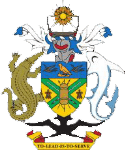Changing weather patterns in Solomon Islands as well as rising temperatures and sea levels due to the effects of climate change have combined to bring an increased risk of natural disasters.
The situation has an added Human dimension due to the rapidly growing urban populations around the country which have led to the settlement of disaster prone areas.
Through its National Disaster Management Office (NDMO), the Ministry of Environment, Climate Change, Disaster Management and Meteorology is leading the country’s efforts to reduce the risks of natural disasters to human lives.
The NDMO’s efforts are supported by the monitoring and evaluation capabilities of the MECDM’s Meteorological Services (SIMS) and Climate Change Divisions. Through the Environment and Conservation Division’s inputs to urban planning and development processes, the MECDM also helps ensure that proper planning and awareness of the risks of living in disaster prone areas leads to a lesser risk of the loss of human lives.
The Ministry’s efforts are supported at the national level by other Government Ministries, sub-national authorities such as the Honiara City Council (HCC) and Provincial Governments, local communities as well as by other groups such as various Non-Governmental Organisations and Civil Society Organisations.
The Ministry’s efforts are supported at the national level by authoritative bodies such as the Honiara City Council (HCC) and other Government Ministries as well by other groups such as various Non-Governmental Organisations, Civil Society Organisations.
On the international front Solomon Islands is a Party to the United Nations Framework Convention on Climate Change (UNFCCC) and its Kyoto Protocol which together make up the core of the international policy response to climate change. Solomon Islands is also a signatory to the Hyogo Framework on Disaster Risk Management and has been involved in the European Union- Global Climate Change Alliance programmes. The country continues to benefit from funding by the Global Environment Facility (GEF) which is the financing mechanism for the UNFCCC made available through Implementing Agencies such as the UNDP, UNEP, FAO and World Bank.
Within the Pacific regional level, Solomon Islands is a signatory to the Pacific Plan, Pacific Islands Framework for Action on Climate Change (PIFACC) and the Regional Framework on Disaster Risk Reduction and Disaster Management that have established climate change and disaster risk management related objectives and actions. Partnerships continue to be developed with a number of international and regional inter-governmental organizations, some of which have specific mandates to assist their member countries address climate change, disaster risk management and related development issues.

